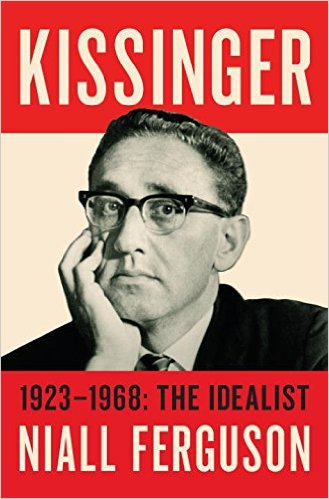 |
|
Niall Ferguson's new book takes the diplomat's life up to the point he entered the White House and wielded political power for the first time.[Photo provided to China Daily] |
Authorized bio
Ferguson, a Scot and internationally-renowned author of several highly successful books, including High Financier: The Lives and Times of Siegmund Warburg and Civilization, which examined China's new challenge to the West's dominance, was actually courted by Kissinger to write his biography more than a decade ago.
"I met him at a London drinks party. He did this thing that was so flattering to young academics. He said he had read one of my books and we talked about it."
During later correspondence, Kissinger asked whether he would take on the task but Ferguson initially refused.
"He wrote back (when Ferguson declined) saying, 'What a pity. I have just found 45 boxes of documents that I thought had been lost'. And, of course, I fell for that," he recalls.
The biography, highly readable despite clearly being the result of monumental research, is more favorable to its subject than a previous one by Walter Isaacson but to what extent was it authorized?
"The term 'authorized' is a dodgy one for me because it implies the subject has editorial control over the text. I said to him very clearly at the outset that if you give me access to your private papers I am not going to be bound by you about what I write. I know there are parts of the book he doesn't like," he says.
The book opens with how the initially idyllic childhood in Fuerth in Bavaria of the then Heinz Kissinger, the son of a senior staff member at a public school, turned into a nightmare with the rise of Hitler. He managed to flee with his immediate family to New York in 1938.
"They got out in the nick of time. They avoided by a matter of months the pogrom organized against the Jews. If he had stayed in Germany as the majority of his wider family did, including his grandmother, he, his brother and parents would have been killed like them."
The biography also follows his return to Germany with the US army and witnessing the pitiful and dehumanized state of survivors at the Ahlem concentration camp.
" I think this was the most formative experiences of his life, seeing with his own eyes the horrors the Nazis had perpetrated," he says.
After the war Kissinger took advantage of the GI Bill and went to Harvard to study, eventually becoming one of America's leading foreign policy academics.
With his thick Bavarian accent he has always been seen as something of an outsider by some in Washington.
"I think it would be a mistake to think - as some have suggested - there is an affectation about his accent. I have lived in the US for 12 years now and although I might have a few Americanizations in my voice, I still retain my accent. It is not so incomprehensible you retain the accent of your teenage years."
|
|
|
|
|
|
|
|
